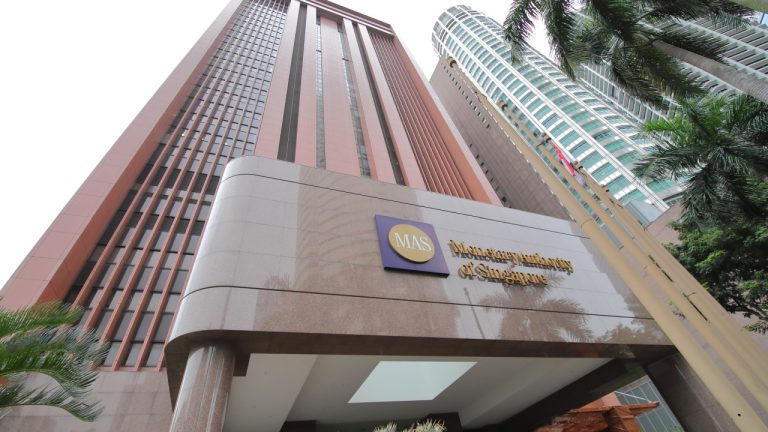 The United Arab Emirates has introduced VAT amendments that impact crypto transactions, redefining tax obligations for companies in the digital asset space. Under the new rules, businesses dealing with cryptocurrencies and other digital assets must carefully evaluate their tax positions, especially as some provisions retroactively affect transactions since 2018. UAE’s VAT Amendments Introduce Retroactive Tax […]
The United Arab Emirates has introduced VAT amendments that impact crypto transactions, redefining tax obligations for companies in the digital asset space. Under the new rules, businesses dealing with cryptocurrencies and other digital assets must carefully evaluate their tax positions, especially as some provisions retroactively affect transactions since 2018. UAE’s VAT Amendments Introduce Retroactive Tax […] The U.S. Department of the Treasury has imposed sanctions on Cambodian tycoon Ly Yong Phat and his businesses, linking them to human trafficking and forced labor scams involving cryptocurrency fraud. Victims were manipulated into online scam centers, and trafficked workers were forced into labor for these schemes. The sanctions freeze U.S.-based assets and prohibit transactions, […]
The U.S. Department of the Treasury has imposed sanctions on Cambodian tycoon Ly Yong Phat and his businesses, linking them to human trafficking and forced labor scams involving cryptocurrency fraud. Victims were manipulated into online scam centers, and trafficked workers were forced into labor for these schemes. The sanctions freeze U.S.-based assets and prohibit transactions, […] Since the collapse of three American banks friendly to cryptocurrency businesses and the U.S. government’s insistence that crypto assets are “risky investments,” many speculators believe bureaucrats are purposely closing access to cryptocurrencies. Some refer to the U.S. government’s recent enforcement as “Operation Chokepoint,” a mission aimed at eliminating access to the crypto ecosystem in the […]
Since the collapse of three American banks friendly to cryptocurrency businesses and the U.S. government’s insistence that crypto assets are “risky investments,” many speculators believe bureaucrats are purposely closing access to cryptocurrencies. Some refer to the U.S. government’s recent enforcement as “Operation Chokepoint,” a mission aimed at eliminating access to the crypto ecosystem in the […]
Currency swap lines have been used during times of crisis in the past, such as the 2008 global financial crisis and the 2020 coronavirus pandemic.
The United States Federal Reserve has announced a coordinated effort with five other central banks aimed at keeping the U.S. dollar flowing amid a series of banking blowups in the U.S. and in Europe.
The March 19 announcement from the Fed comes only a few hours after Swiss-based bank Credit Suisse was bought out by UBS for $3.25 billion as part of an emergency plan led by Swiss authorities to preserve the country’s financial stability.
According to the Federal Reserve Board, a plan to shore up liquidity conditions will be carried out through “swap lines” — an agreement between two central banks to exchange currencies.
Swap lines previously served as an emergency-like action for the Federal Reserve in the 2007-2008 global financial crisis and the 2020 response to the COVID-19 pandemic. Federal Reserve-initiated swap lines are designed to improve liquidity in dollar funding markets during tough economic conditions.
Coordinated central bank action to enhance the provision of U.S. dollar liquidity: https://t.co/Qs4cYY8BFO
— Federal Reserve (@federalreserve) March 19, 2023
“To improve the swap lines’ effectiveness in providing U.S. dollar funding, the central banks currently offering U.S. dollar operations have agreed to increase the frequency of seven-day maturity operations from weekly to daily,” the Fed said in a statement.
The swap line network will include the Bank of Canada, Bank of England, Bank of Japan, European Central Bank and the Swiss National Bank. It will start on March 20 and continue at least until April 30.
The move also comes amid a negative outlook for the U.S. banking system, with Silvergate Bank and Silicon Valley Bank collapsing and the New York District of Financial Services taking over Signature Bank.
The Federal Reserve, however, made no direct reference to the recent banking crisis in its statement. Instead, it explained that they implemented the swap line agreement to strengthen the supply of credit to households and businesses:
“The network of swap lines among these central banks is a set of available standing facilities and serve as an important liquidity backstop to ease strains in global funding markets, thereby helping to mitigate the effects of such strains on the supply of credit to households and businesses.”
The latest announcement from the Fed has sparked a debate about whether the arrangement constitutes quantitative easing.
U.S. economist Danielle DiMartino Booth argued that the arrangements are unrelated to quantitative easing or inflation and that it does not “loosen” financial conditions:
MISINFORMATION PREVENTION MOMENT
— Danielle DiMartino Booth (@DiMartinoBooth) March 19, 2023
Swap lines do NOT constitute loosening financial conditions.
One more example: You're a doctor. A patient is having cardiac arrest. You can SEE the paddles to revive him/her but you can't REACH the paddles. These swap lines HAND you the paddles. https://t.co/RXOPiBmsif
The Federal Reserve has been working to prevent an escalation of the banking crisis.
Related: Banking crisis: What does it mean for crypto?
Last week, the Federal Reserve set up a $25 billion funding program to ensure banks have sufficient liquidity to cover customer needs amid tough market conditions.
A recent analysis by several economists on the SVB collapse found that up to 186 U.S. banks are at risk of insolvency:
“Even if only half of uninsured depositors decide to withdraw, almost 190 banks are at a potential risk of impairment to insured depositors, with potentially $300 billion of insured deposits at risk.”
Cointelegraph reached out to the Federal Reserve for comment but did not receive an immediate response.
 On Monday, the New York Department of Financial Services (NYDFS) published guidance on custodial structures to help protect customers’ money if a crypto firm goes bankrupt. New York’s top financial regulator stressed that businesses should not commingle customer funds and that customer funds should be segregated with separate accounting. FTX Collapse Prompts NYDFS to Issue […]
On Monday, the New York Department of Financial Services (NYDFS) published guidance on custodial structures to help protect customers’ money if a crypto firm goes bankrupt. New York’s top financial regulator stressed that businesses should not commingle customer funds and that customer funds should be segregated with separate accounting. FTX Collapse Prompts NYDFS to Issue […] With limited access to global finances, Russian businesses have begun settling in cryptocurrency with their partners abroad. Although these are still small-scale payments, government officials have noted their increase, which comes even before authorities have decided how to regulate these transactions. Cross-Border Crypto Settlements on the Rise in Russia as US Dollar and Euro Payments […]
With limited access to global finances, Russian businesses have begun settling in cryptocurrency with their partners abroad. Although these are still small-scale payments, government officials have noted their increase, which comes even before authorities have decided how to regulate these transactions. Cross-Border Crypto Settlements on the Rise in Russia as US Dollar and Euro Payments […] Russian companies may start transacting in cryptocurrency with partners abroad as early as next year and will be free to pick the coin they want to use, officials in Moscow have indicated. The sanctioned country is preparing to legalize foreign trade settlements with digital assets and this could happen in the coming months. Russian Government […]
Russian companies may start transacting in cryptocurrency with partners abroad as early as next year and will be free to pick the coin they want to use, officials in Moscow have indicated. The sanctioned country is preparing to legalize foreign trade settlements with digital assets and this could happen in the coming months. Russian Government […] Financial authorities in Singapore are taking steps toward increased oversight in the crypto space with the city-state’s central bank reportedly asking companies to provide additional information about their activities and assets. Ahead of a possible broadening of the applicable rules, the authority is trying to get a clearer idea of their financial state, knowledgeable sources […]
Financial authorities in Singapore are taking steps toward increased oversight in the crypto space with the city-state’s central bank reportedly asking companies to provide additional information about their activities and assets. Ahead of a possible broadening of the applicable rules, the authority is trying to get a clearer idea of their financial state, knowledgeable sources […]
Merchants that accept crypto rather than credit cards for payments can expect to save as much as 3.5% — or more.
Tesla temporarily embracing Bitcoin (BTC) as a method of payment for its products was conceivably one of the catalysts that pushed asset prices to record highs last year and put the spotlight on crypto legitimacy — particularly in the realm of payments. Moreover, crypto enthusiasts had lauded the fact that Tesla even set up its own node to accept BTC and stated that it wouldn’t swap its holdings for fiat, implying high confidence in the crypto’s long-term prospects.
But despite having backtracked and ceased its Bitcoin acceptance a few months after due to climate concerns, Tesla was only a cog in the adoption machine of 2021. Starbucks, Whole Foods and AMC Entertainment were just some of the other juggernauts that made their foray into crypto last year. However, what’s apparent is that headlines play favorites to household names. For other businesses that want to hop on the trend, it’s a question of how to start.
Cointelegraph Research’s latest report provides answers. The 35-page paper goes over the booming trend in crypto acceptance and practical ways any business can integrate cryptocurrencies into their operations. Additionally, the report also looks at the future of crypto in payments, particularly concerning regulation, and a lot more.
Cryptocurrencies are believed to be in a phase of hyper-adoption, and the 178% increase in the global crypto population is further evidence of that. For businesses, accommodating this growing demographic would mean an expansion of their potential client base. Receiving payments in crypto is also a lot cheaper when compared to TradFi methods, which may improve a company’s bottom line. Merchants could save up to 3.5% in fees — or more — if the payment method is in crypto rather than credit or debit cards.
Download the full report here, complete with charts and infographics
Chargebacks are also another drawback with TradFi payment methods, costing e-commerce merchants $125 billion in 2021. Chargebacks are a type of payment reversal where the merchant returns the sum of money to the customer due to a transaction dispute or if the customer returns the purchased product. However, chargebacks can also be outright fraud, as some customers may dispute a transaction to secure a refund despite having zero issues with the product or its delivery.
Whether a company sets up its own node like Tesla or opts for a payments processor to facilitate the transaction, the way to do it is more or less the same but differs under the hood. For instance, certain payments processors can allow a merchant to receive crypto but would also enable real-time settlement in fiat. This effectively removes price volatility while giving the merchant the flexibility to accept digital assets. Of course, the downside is that it subjects the company to the often drawn-out procedures in TradFi.

The other side to this is to accept the actual crypto-asset wholeheartedly, and there are various reasons for doing so. Long-term price appreciation is the most common argument, but companies can also hold on to crypto assets for rainy-day situations. Merchants can also earn additional revenue by utilizing the avenues available within the crypto space, such as locking cryptos in DeFi protocols to earn yield from staking or lending.
Ultimately, the deciding factor on the channel to receive crypto assets will depend on the merchant. The factor that needs to be considered is whether the objective is to hold cryptocurrencies or tap into the growing crypto customer base — or maybe even both.
Download the full report with more detailed information, complete with charts and infographics on the Cointelegraph Research Terminal.
This article is for information purposes only and represents neither investment advice nor an investment analysis or an invitation to buy or sell financial instruments. Specifically, the document does not serve as a substitute for individual investment or other advice.
 Authorities in Iran are preparing to allow the employment of cryptocurrencies for international settlements. According to local media, central bank and government officials have given the green light to adopt a mechanism using digital coins in the field of foreign trade. Businesses in Iran to Be Able to Pay Foreign Partners With Crypto Iranian companies […]
Authorities in Iran are preparing to allow the employment of cryptocurrencies for international settlements. According to local media, central bank and government officials have given the green light to adopt a mechanism using digital coins in the field of foreign trade. Businesses in Iran to Be Able to Pay Foreign Partners With Crypto Iranian companies […]